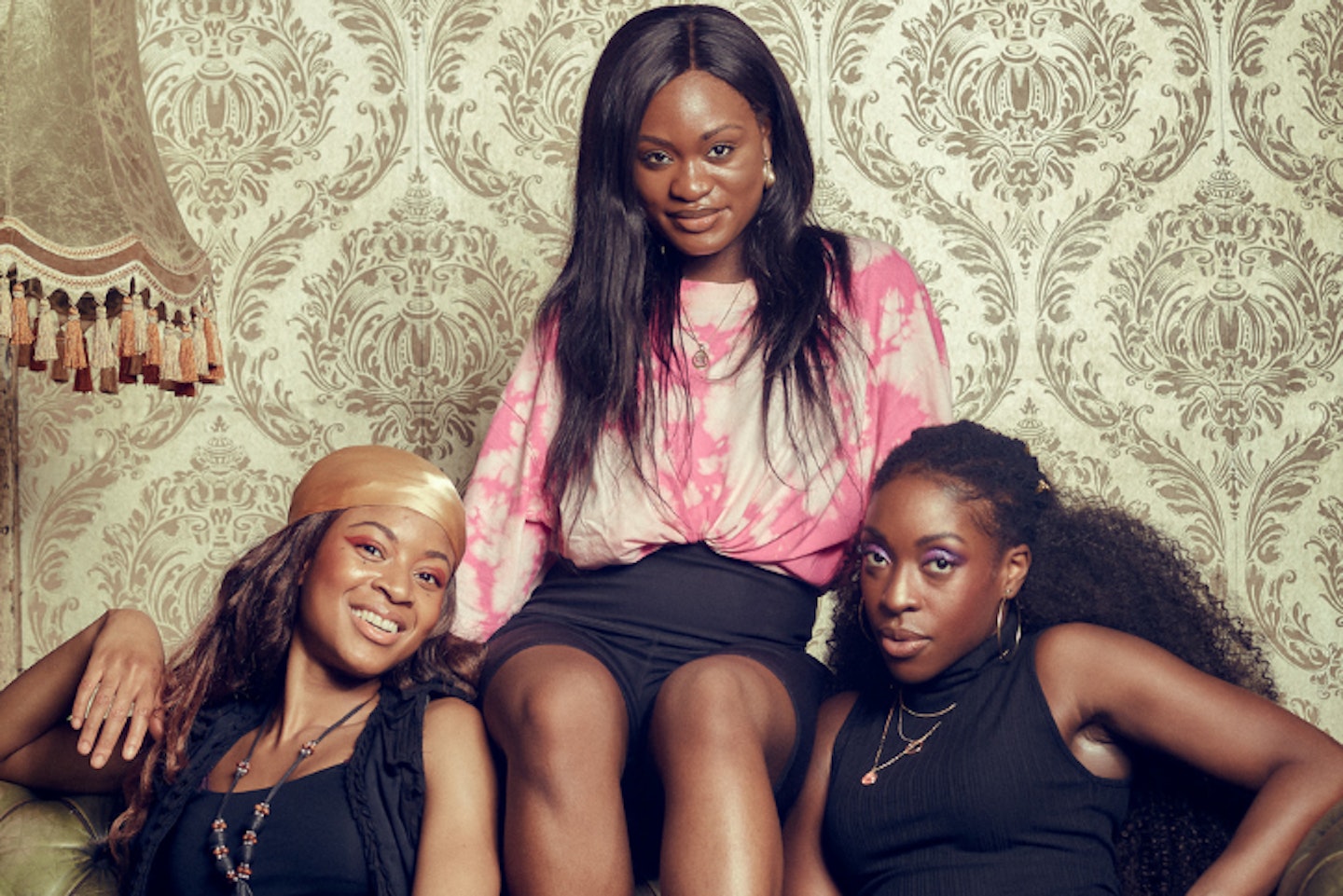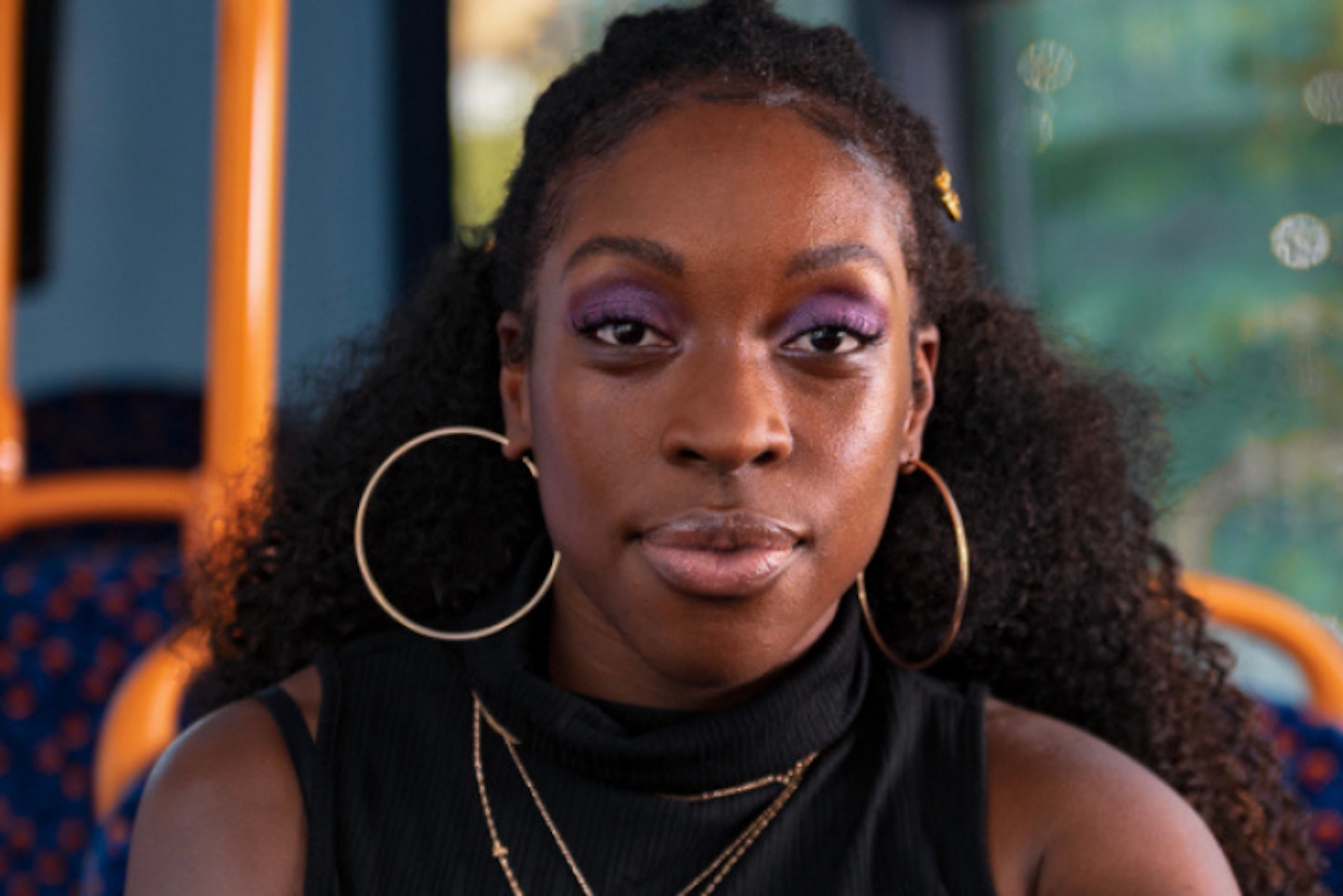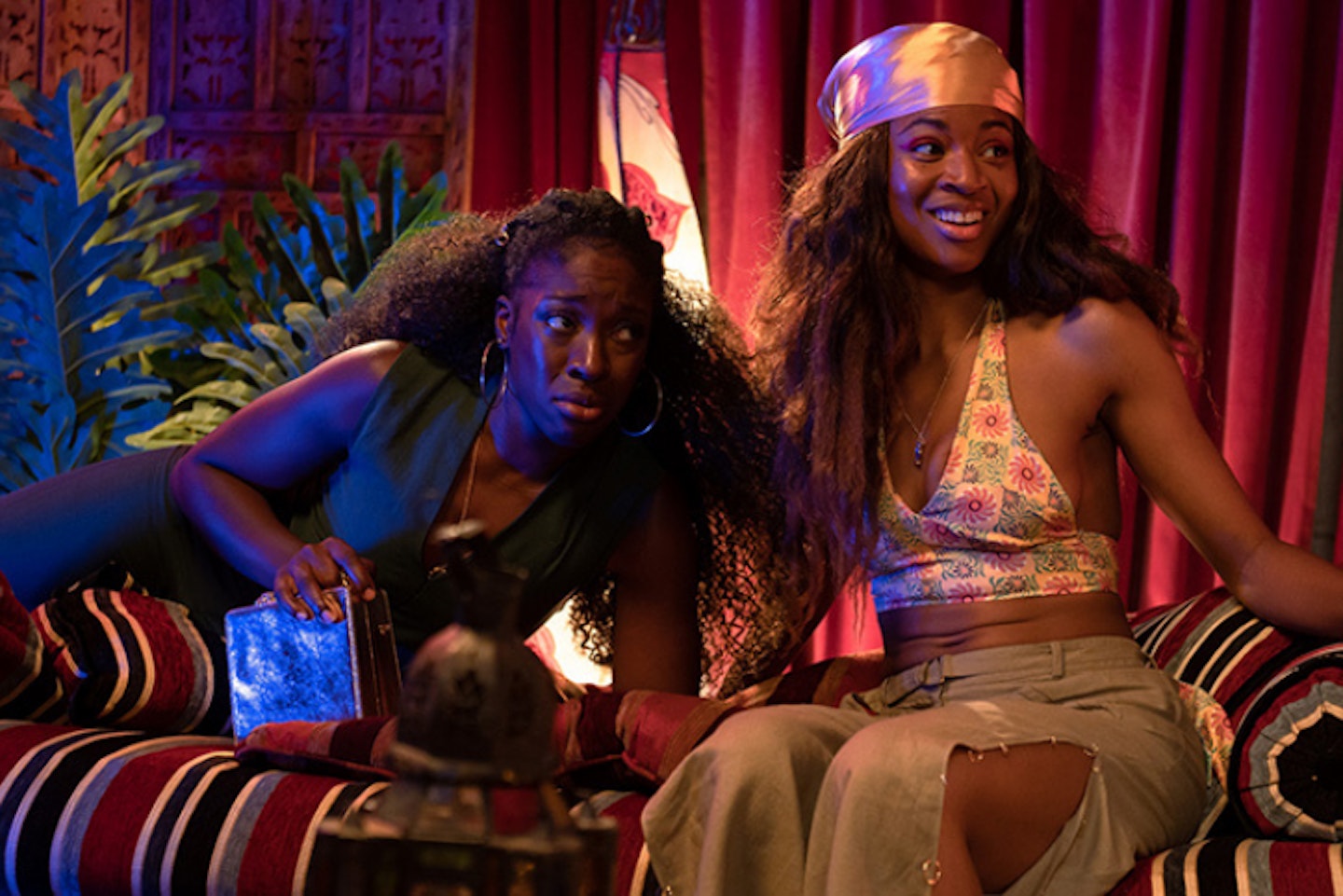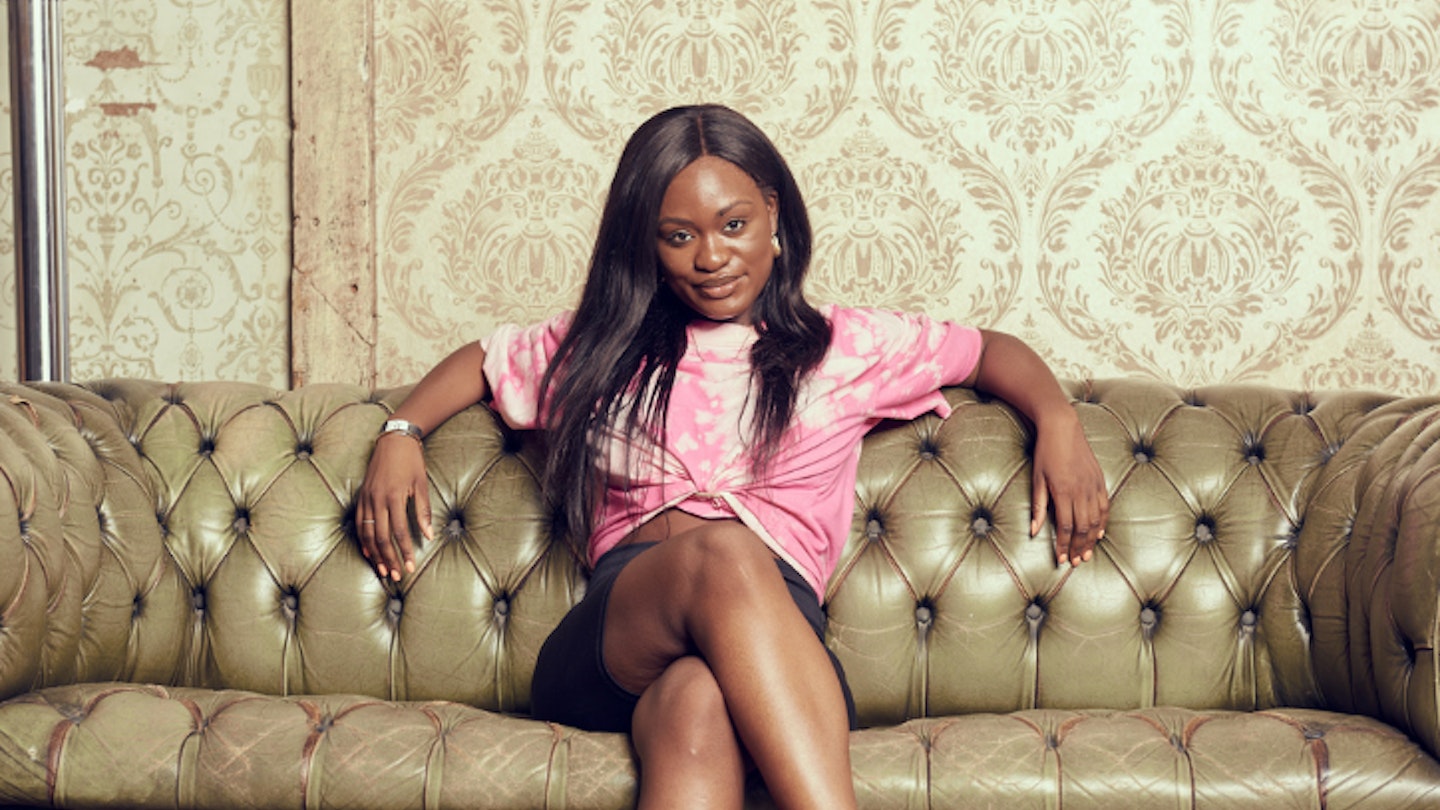'Formation,’ Bolu reply with ease over Zoom after I ask what Beyoncé song best describes the show. ‘I think the beauty of Beyoncé is when she talks her shit, you also feel empowered and that’s how I want people to feel while watching Big Age.’
Bolu Babalola was 9 years old when she realised writing was her passion. Since then, she’s progressed from writing stories for class on her PC in Comic Sans, to a Sunday Times Best-Selling Author for Love in Colour. Babalola's 4th Estate BAME prize nominated short story Netflix and Chill was the catalyst for her screenwriting journey and there are no signs of stopping. The writer has also amassed a massive online following of people who engage with her relatable voice and witty one liners on Twitter.
Now, her upcoming comedy ‘Big Age’ is ready to erupt on screen – depicting a group of young Black brits going through their ‘big age’ era and attempting to not just survive, but thrive in their mid 20’s.
The Nigerian saying ‘At your big age’ is enough to make anyone re-evaluate where they stand in life. The writer tells me, ‘Like, you’ll say to a friend - at your big age, this is really what you’re doing?’ she says through laughter, ‘You know just to push them in the right direction.’

I ask about her own 'big age' era. 'For me, I feel like 25 was a turning point where I thought, Oh, I'm real grown now. Now I’m 30, I know that at that point you're still figuring it out and there is no pressure. But back then I had an expectation in my head that I’m supposed to be an "adult" now.’
As part of Channel 4’s historic Black to Front week - where black talent fronts a full day of programming - we are introduced to protagonist and aspiring writer Ṣadé (Ronke Adékoluẹjo) and her best friend Dela (Racheal Ofori). Later we also meet Tayo (CJ Beckford) and Zeke (Michael Workeye) to round of the shows main cast of friends.
Speaking to Bolu almost feel's like catching up with an old friend as she reveals, ‘Ṣadé is loosely based on myself – we are both writers and have law degrees we don’t want to use,' she says with a warm smile. 'Obviously, it is not biographical, but it's based on my life.'
Babalola tells me watching her creation come to life on Channel 4 feels extremely surreal.’ I had the original idea when I was 25 and watching it all come into fruition now is incredible.’
TV shows representing the black British experience have always been few and far between. The US led (and still leads) the way when it comes to black comedies and dramas. I found myself clinging on to minor diverse characters in EastEnders, and looking back on shows like the Fresh Prince of Bel Air and My Wife and Kids for a dose of authentic representation.
Today there are shows like Issa Rae’s ground-breaking Insecure, which put’s authentic black experiences at the heart of each story, but again this relates to the Black US experience.

Bolu realises what this show can do for representation on screen in the UK, ‘I really just want people to see young, black, British people living their lives and being unapologetic about their ambition. Also, I wanted there to be romance in it.’
As a self-coined ‘romcomoisseur’ Bolu creates female characters who are loved audaciously and Ṣadé will have many suitors, ‘We don't really have a lot of black, British romcoms and I really wanted to bring that element in.’
Through her writing in ‘Big Age’, Bolu finds the beauty in creating female protagonists who are bold and outspoken, ‘That, for me is like the best kind of romantic character and the best kind of heroine.’ She continued,’ Ṣadé has some insecurities, but alongside this she has a level of knowing who she is, and those two things run parallel to each other.’
As I watch the pilot episode, I realise that while romantic love plays a part, the greatest love of all is between Ṣadé and Dela. I'm rooting for these characters to succeed from the moment they appear on screen as I see glimmers of myself in each one. Sisterhood is clearly also at the core of the story - Bolu later reveals that their friendship is in fact an amalgamation of her relationships with her best friends.

She also depicts authentic black women from all angles, ‘I want to really to show off our nuances. Black women tend to be portrayed in a very black and white way, and that's very constricting of our humanity.
She says, ‘If we are confident then all our virtues are kind of manipulated to seem negative. So, if we're confident it means that we're arrogant and if we're quiet, that means were subservient.’ Bolu has created characters who go beyond the archetypical mould to show the complexity of blackness beyond one homogenous representation.
The writer reflects on her journey from a BBC Comedy writing assistant to now and reaffirms that maintaining the integrity of her vision has led her to this moment.
As our Zoom call ends, I’m left with three words to describe Big Age by Bolu: joyful, sexy, and hopeful.
Big Age airs on Channel 4 at 11pm on Friday 10 September.
